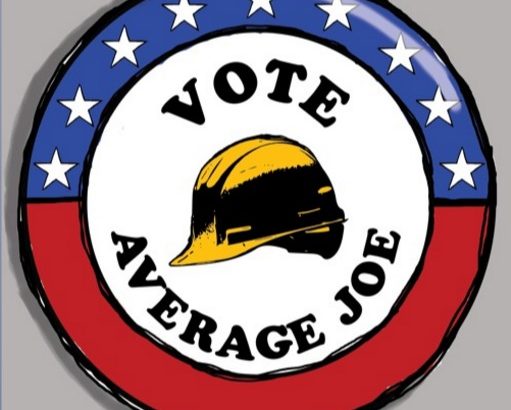A Trump official says members of the team had read some of the memos from the Obama administration and praised their quality. But there is an inherent tension in transitions, particularly between two administrations with starkly different political views. “It’s difficult, because you campaigned on how these guys drove the car into the ditch,” says political scientist Peter Feaver, who served on the Bush national security council. “Now, here are memos from the guys who were driving the car, and they drove the car into a ditch.”
Category: Politics-Public Policy

Bridging Red and Blue America, Jan. 18-20
During presidential inaugural week, the Sanford School of Public Policy hosts a series of four events Jan. 18-20 to examine national politics and North Carolina’s role in some of the country’s most divisive issues. The events, starting today at 5 p.m., kick off “The Purple Project: Bridging Red and Blue America,” created by POLIS. The event series is free and open to the public, space permitting.
Read More From the Sanford School
Some Upset Over National Cathedral Participating in Inauguration
It’s one thing to pray for the president, says Kara Slade, an Episcopal priest and interim co-director of Duke Divinity School’s Anglican Studies, who supports the service. It’s another thing for the choir to participate in the secular act of the inauguration. Slade believes the Episcopal Church’s role in the inauguration causes confusion over religious symbolism.
Read More in The Washington Post

Obama Legacy Encompasses Character, Democratic Values
“In the end, Obama taught us the importance of character – and of believing in the democratic values that are at the root of our national identity. … And then there is how he gave us a new example to follow of being a father, a husband and a national leader — all at the same time. Not a bad legacy at all,” writes William Chafe, professor emeritus of history.
Read More in The Herald-Sun
Apart, Atop, Amidst: America in the World
“With its insulation stripped away amidst globalization and its dominance disrupted as other countries assert themselves, the United States finds itself neither apart nor atop but rather amidst the world, both shaping and being shaped by global events and forces. As formidable as the policy challenges this poses are, the shock Americans feel to their sense of themselves and their nation is even more fundamental,” writes Sanford School professor Bruce Jentleson.
Read More in War on the Rocks
Forget a Wall. There’s a Better Way to Secure the Border.
“As Gen. Kelly, who will oversee our borders if confirmed, seems to believe, walling off the entire southern boundary at great cost sends a hostile message that could snuff out the very cooperation needed to make our borders truly secure. Innovative and road-tested alternatives clearly exist. The Trump administration should give them a hard look before laying its first brick,” writes Sanford School professor Stephen Kelly.
Read More in The New York Times
The Disturbing Legal Legacy Obama is Leaving for Trump
Many Americans just don’t seem to mind if the president kills people, even U.S. citizens, as long as they’re told the people being killed are terrorists. “Americans are very pragmatic as to how a president exercises his War Powers,” writes Charles Dunlap, executive director of Duke’s Center on Law, Ethics and National Security. “(T)hey are less concerned about the technical legal basis as they are about success against authentic threats.”
Read More in Vox
Flaws in The New Intelligence Report on Russia
The country’s leading expert on Russian media, Duke professor emeritus Ellen Mickiewicz, asks why theOffice of the Director of National Intelligence takes at face valuethe Russian state media channel RT’s own estimate of its viewership at “550 million people worldwide and 85 million in the US.” That estimate, says Mickiewicz, “is wholly imaginary. It refers to potential audience: Households that can receive a signal—if and only if—they bother to turn it on.”
Read More in The Nation
How to Crack Down on Fake News
“Our best option is to tailor laws and design institutions with the goal of containing fakery and fraud, an objective that depends as much on the operation of social norms and shaming techniques as it does on formal penalties and the cultivation of savvier consumers of products, investment pitches and news,” writes history professor Edward Balleisen.

Higher Legislative Pay Just Gets You Richer Lawmakers
The Duke study found states that pay lawmakers more still have legislatures dominated by white-collar professionals. “Reformers argue higher pay … would have the benefit of increasing economic diversity in our political institutions,” said Nicholas Carnes, lead author and assistant professor at the Sanford School of Public Policy. “Our research shows this isn’t true.”

Exhibit A for Republican Obamacare Repeal Challenge: People with HIV
HIV experts in Republican states have already been wrestling with the issue of caring for patients with HIV. Earlier this year, North Carolina became the 48th U.S. state to permit the use of federal grant money via the Ryan White HIV/AIDS program to pay insurance premiums for people with HIV. “We’re late to the party, and now the party may be over,” says Allison Rice, director of the Health Justice Clinic at Duke Law.
Read More in The New York Times

Trump’s ‘Historic’ Opportunity to Reshape the Federal Courts
Ernest Young, a Duke University law professor focused on the federal courts, expects Democrat-led states to respond to President Trump’s potential regulatory changes by issuing their own regulations on issues such as climate change and immigration. If that happens, Young predicts the lower federal courts will see cases involving conflicts between federal and state law.
Read More in the Daily Signal


